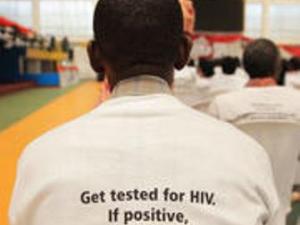
Are efforts for HIV prevention waning?
Activists and experts say there is need to do more as far as HIV prevention is concerned, even as Rwanda has made strides in the fight against the disease.
As antiretroviral treatment (ART) of HIV/Aids has become increasingly accessible, experts fear that some people are losing the sense of vigilance in regard to prevention, yet the disease is still a health concern that has neither cure nor vaccine.
Dr. Brenda Asiimwe Kateera, a health specialist, advocate and researcher who has spent several years working in various programmes fighting against HIV/Aids told The New Times in an interview that ART remarkably improves the lives of people living with HIV and limits their chances of spreading it, and due to that, some people may wrongly think that the virus is no longer a threat.
“However, I want to emphasise that from an evidence point or perspective, HIV is still a serious condition even in Rwanda. We are still seeing a number of new infections among the young people. Having treatment in place doesn’t mean that the disease has been controlled,” she said.
She noted that there are good preventive efforts being implemented by the government and relevant stakeholders, but said more needs to be done, in a multi-sectoral way.
“I want to highlight that the government is continuing to place emphasis on prevention in terms of programs and investment. But of course there is need for more - not just in form of biomedical measures like PREP (Pre-exposure Prophylaxis) and so on, but social behavioural awareness and mitigating campaigns, in addition to things like fighting gender-based violence, keeping girls in school and so on,” she said.
Dr. Basile Ikuzo, the Director of HIV Prevention in the HIV/AIDS and STIs Diseases Division of the Rwanda Biomedical Centre (RBC), told this newspaper that prevention is the most important measure in dealing with any disease.
He noted that though the Covid-19 pandemic has hindered some of their outreach sensitization campaigns, they have turned to other channels to communicate preventive messages to Rwandans via means like the radio, billboards, among others.
“We are still reminding people that the disease is still around, it has gone nowhere. It neither has cure nor vaccine, so it is still a threat,” he noted.
We put lots of effort into prevention because when you want to control a disease, you need to put serious focus on the reduction of new infections, he added.
“We are also continuing to give good treatment to those living with HIV so that they live well, in addition to having limited chances of spreading it.”
Ikuzo highlighted that the country’s target is that every person gets to know their HIV status, so that those that are negative will continue being vigilant, while the infected ones immediately start having ART.
“Today, because of medical improvements, HIV/Aids is no longer killing people as it used to in the past. However, we should not drop the preventive measures,” he added.
Jules Mugisha, the Program Manager of Ihorere Munyarwanda, a local Non-Governmental Organization implementing several interventions in the fight against HIV said in an interview with this newspaper that there are several young people that do not know much about HIV and therefore, organisations like his are playing a part in this.
The Rwanda Population-based HIV Impact Assessment (RPHIA), a country-wide survey concluded in 2019 showed that the prevalence of HIV among Rwandans between 15-64 years is at 3 per cent.
https://www.newtimes.co.rw/news/are-efforts-hiv-prevention-waning
